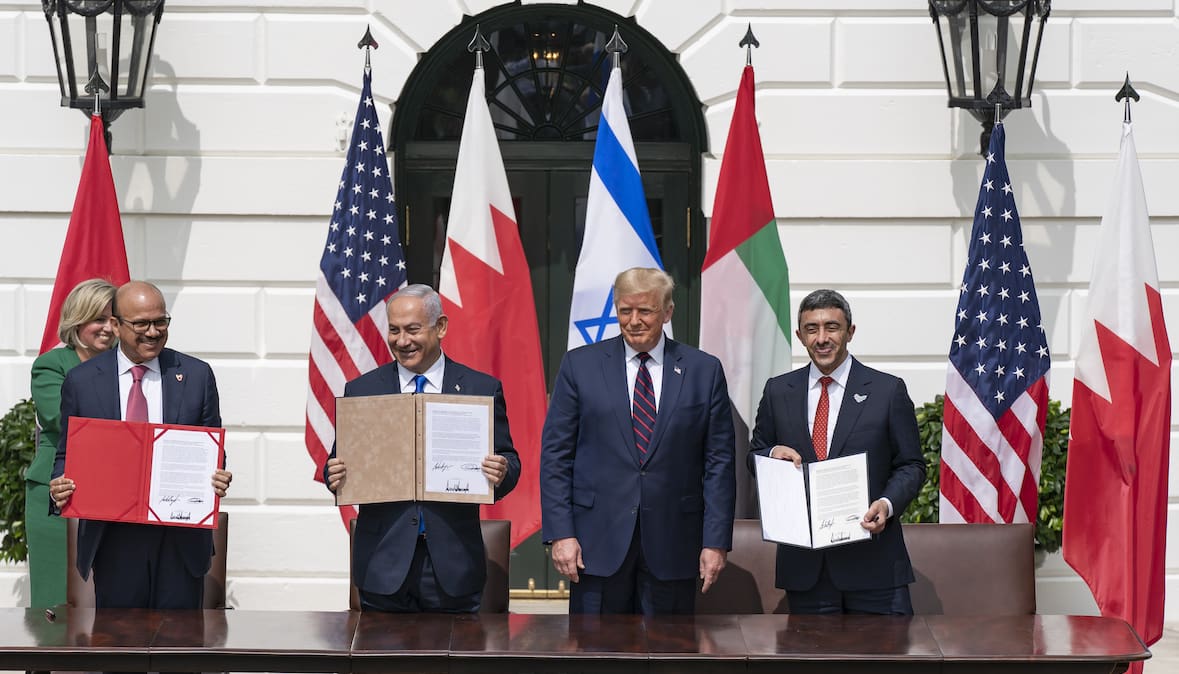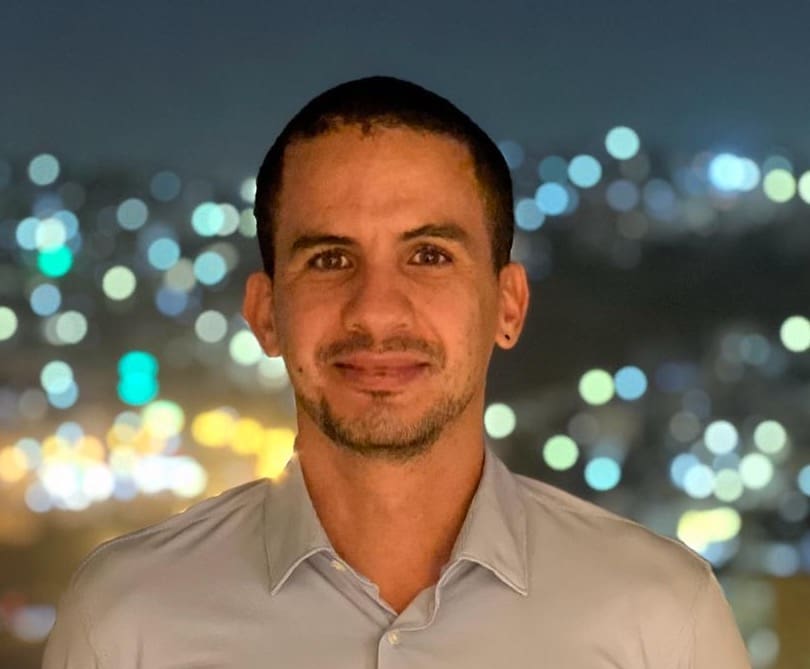
With the recent US congressional push for normalization deals between Arab states and the Israeli regime under the Abraham Accords, the voices of US and Arab dissenters from the streets of San Francisco, Washington, DC, Manama, Dubai, and beyond, have been largely silenced in mainstream media outlets. What do these deals signify for the Arab residents of normalizing states? How can their voices be amplified within the context of increasingly authoritarian rule? What does a transnational anti-normalization campaign from the halls of the US Congress to the streets of Manama look like?
To reflect on these questions and more, Al-Shabaka’s Commissioning Editor, Nadim Bawalsa, is joined by anti-normalization activists, Nadya Tannous and Sumaya Almajdoub, in the latest installment of Al-Shabaka’s policy lab series.
Nadim Bawalsa is Associate Editor with the Journal of Palestine Studies. From 2020-2023, Nadim served as Al-Shabaka’s commissioning editor. He is a historian of modern Palestine, and author of Transnational Palestine: Migration and the Right of Return before 1948 (Stanford University Press, 2022). His other work has appeared in the Jerusalem Quarterly, the Journal of Palestine Studies, NACLA Report on the Americas, and as well as in edited volumes. He earned a joint doctorate in History and Middle Eastern & Islamic Studies from New York University in 2017, and a Master’s in Arab Studies from Georgetown University’s Center for Contemporary Arab Studies in 2010. In 2019-2020, he was awarded a PARC-NEH fellowship in Palestine.
Nadya Tannous was Al-Shabaka’s summer 2021 visiting US policy fellow. She is a passionate community organizer, born and raised in the Bay Area (Ohlone Territory). In her work, she focuses on political education, movement relationship building, anti-militarism, and returning land to the people and people to the land. Nadya holds an MSc in Refugee and Forced Migration Studies from the University of Oxford and a BA in Anthropology and Global Information and Social Enterprise Studies from UC Santa Cruz.















